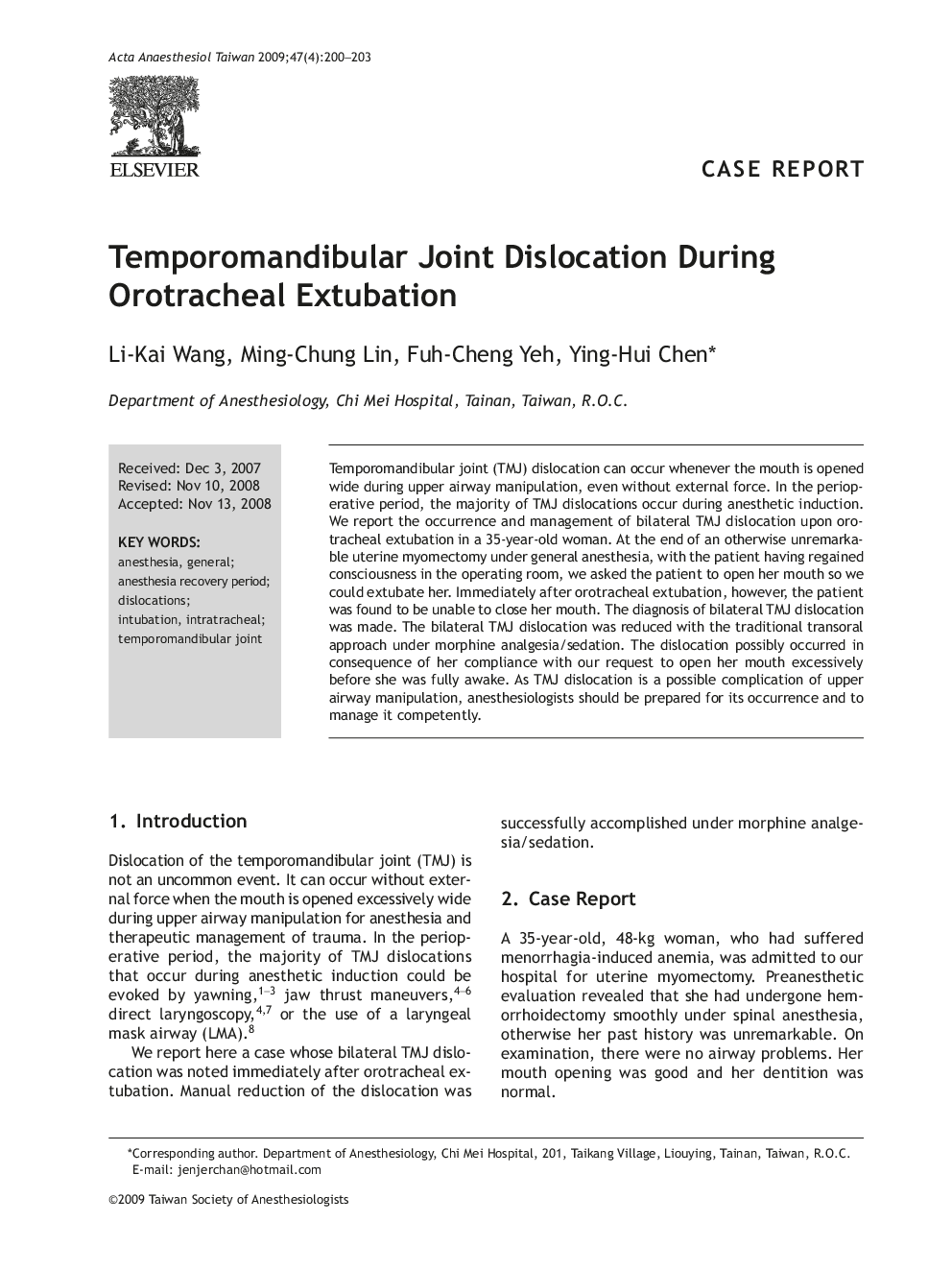| Article ID | Journal | Published Year | Pages | File Type |
|---|---|---|---|---|
| 2741655 | Acta Anaesthesiologica Taiwanica | 2009 | 4 Pages |
Temporomandibular joint (TMJ) dislocation can occur whenever the mouth is opened wide during upper airway manipulation, even without external force. In the perioperative period, the majority of TMJ dislocations occur during anesthetic induction. We report the occurrence and management of bilateral TMJ dislocation upon orotracheal extubation in a 35-year-old woman. At the end of an otherwise unremarkable uterine myomectomy under general anesthesia, with the patient having regained consciousness in the operating room, we asked the patient to open her mouth so we could extubate her. Immediately after orotracheal extubation, however, the patient was found to be unable to close her mouth. The diagnosis of bilateral TMJ dislocation was made. The bilateral TMJ dislocation was reduced with the traditional transoral approach under morphine analgesia/sedation. The dislocation possibly occurred in consequence of her compliance with our request to open her mouth excessively before she was fully awake. As TMJ dislocation is a possible complication of upper airway manipulation, anesthesiologists should be prepared for its occurrence and to manage it competently.
